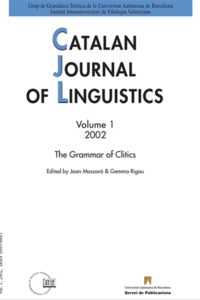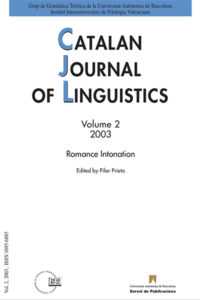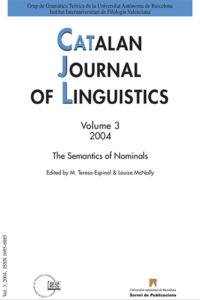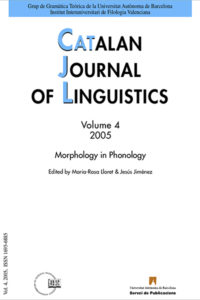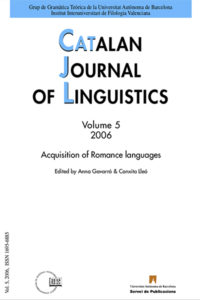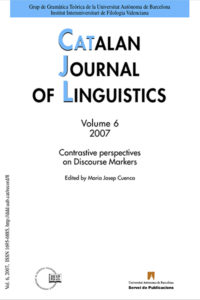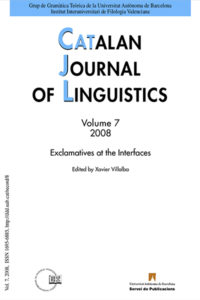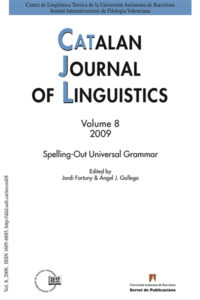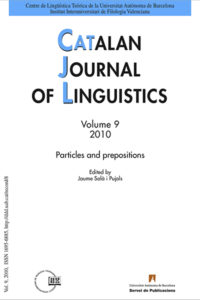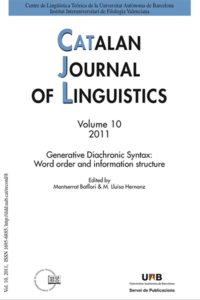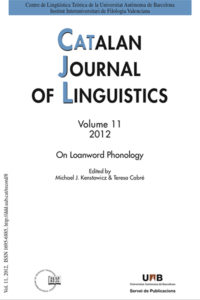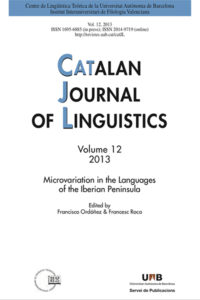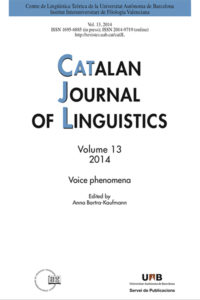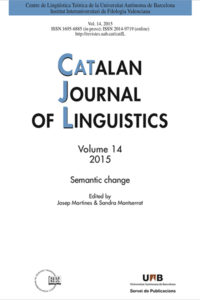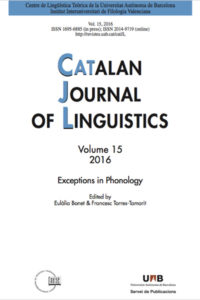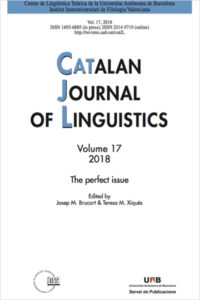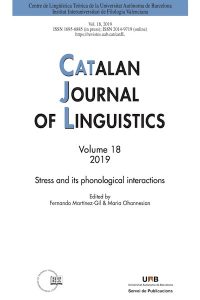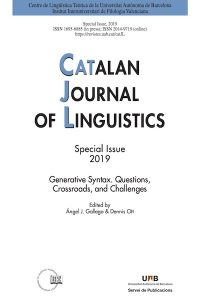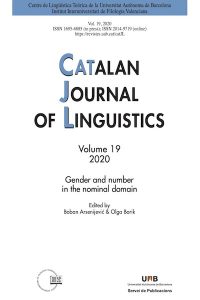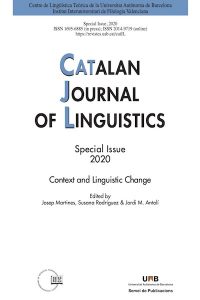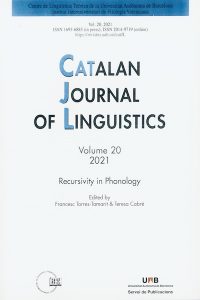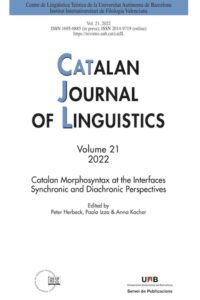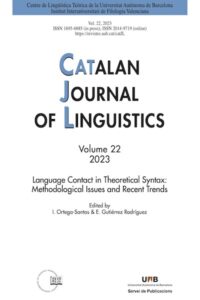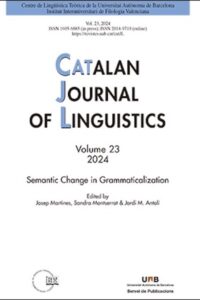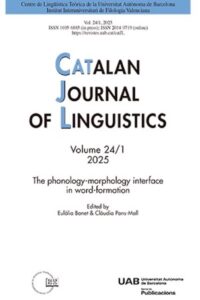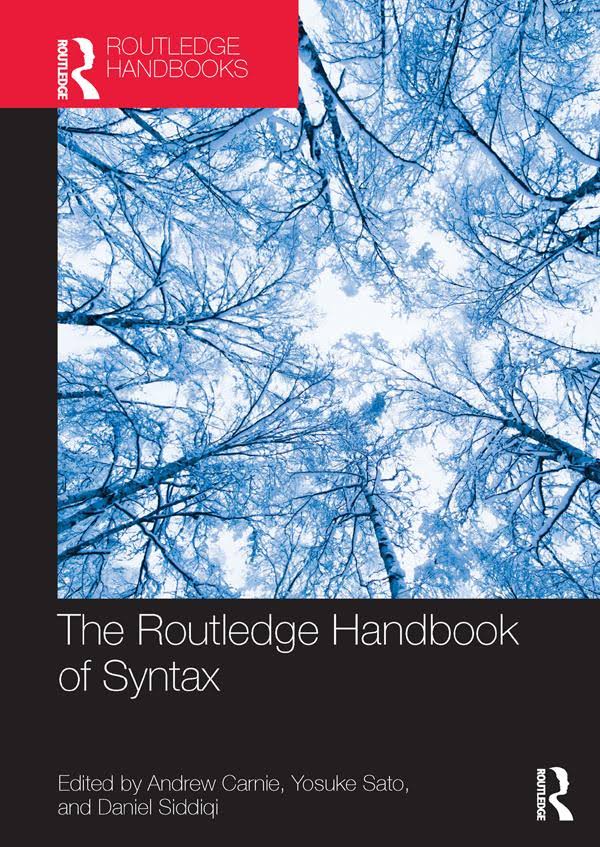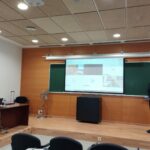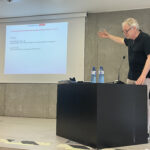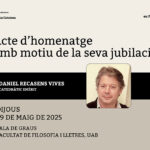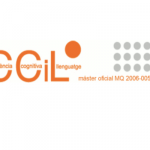6 febrer, 2017
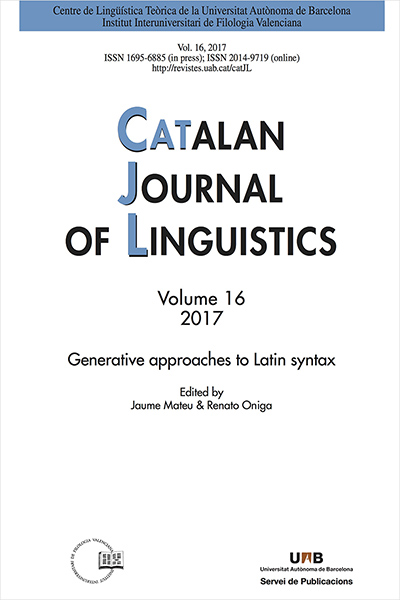
Autors:
Mateu, Jaume & Renato Oniga (eds.)
Títol:
Generative Approaches to Latin SyntaxEditorial: Bellaterra: Servei de Publicacions de la UAB
Col·lecció: Catalan Journal of Linguistics #16Data de publicació: 2017
Pàgines: 216 Text completFifty years have passed since the first attempt to apply generative grammar methods to Latin syntax. The well-known book by Robin Tolmach Lakoff, published in 1968 by the MIT Press with the title of Abstract Syntax and Latin Complementation, was presented as a dissertation in linguistics at Harvard University in 1967, with the title of Studies in the Transformational Grammar of Latin. The Complement System. In order to celebrate its fiftieth anniversary, we thought it was appropriate to publish a collection of papers written by some distinguished specialists who approach the study of Latin syntax from a generative perspective. Their works show the important research that is being currently carried out in this active field. In this introduction, we would like to briefly trace the development of this research area, trying to emphasize elements of continuity, changes, results, and problems. Although generative grammar has provided very important contributions to phonology and morphology as well, it is nonetheless clear that, from the very beginning, its theoretical focus has been on syntax.
Títols de la col·lecció / Also in this series:
12 gener, 2018
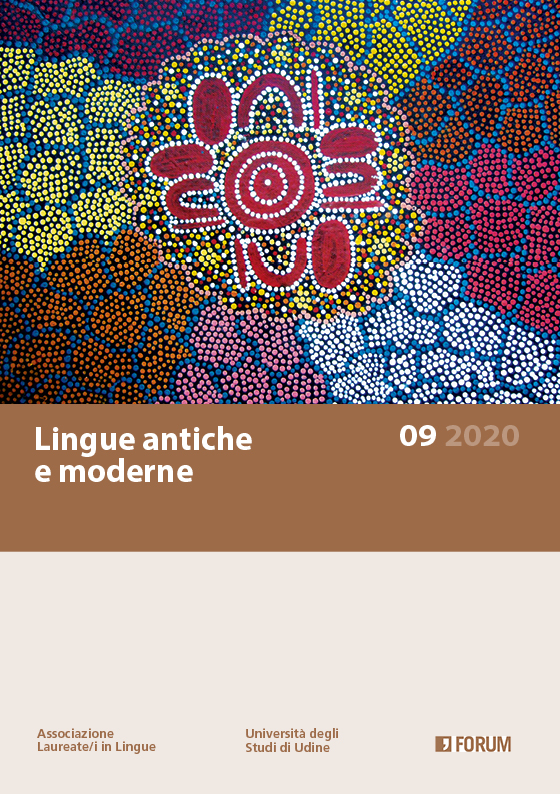
Autors:
Jaume Mateu & Renato Oniga
Títol:
Lingue antiche e moderne, 9Editorial: Università degli Studi di Udine
Data de publicació: Setembre de 2020
ISBN13: 2281-4841
Més informacióWord formation in Latin is a fascinating subject that has been approached from different theoretical perspectives in recent decades. In this area there are some prominent topics that have captured the attention of various researchers.
Within the 20th International Colloquium on Latin Linguistics, held at the University of Las Palmas de Gran Canaria on 17-21 June 2019, we organized a workshop to congregate researchers who are working on word formation in Latin from different theoretical perspectives. Our goal was to begin a free and informal exchange of ideas in order to promote a fruitful cross-theoretical debate.
In this number of the journal we have collected a selection of the papers presented in the workshop. Each paper has been reviewed by two anonymous reviewers and we are very grateful to them for their efforts and help to improve the quality of the contributions. The papers offer different paths of argumentation and linguistic theorizing, which provide a substantial overview on the area of word formation in Latin today.
12 gener, 2013
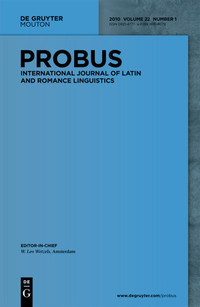
Autors:
V. Acedo-Matellán & J. Mateu
Títol:
Probus, International Journal of Latin and Romance LinguisticsEditorial: De Gruyter
Data de publicació: Gener del 2013
ISBN13: https://doi.org/10.1515/probus-2013-0008
Més informacióIn this paper we are interested in the relation between two facts accompanying the diachronic change from Latin to Romance within the domain of the morphological and argument-structural properties of the predicates expressing change. On the one hand, the element encoding the transition itself, which we call the Path, and the verb are realised as two distinct morphemes in Latin, but as one and the same morpheme in the daughter languages: in Talmy's (2000) terms, the former is a satellite-framed language and the latter are verb-framed languages. On the other hand, there is a whole range of argument-structural patterns which are found in Latin but not in Romance: unselected object constructions, complex directed motion constructions, productive locative alternation, etc. We show, within a syntactic view of argument structure and morphology, that both facts are intimately related. Furthermore, we provide data from Old Catalan showing an intermediate stage between the Latin satellite-framed system and the Romance verb-framed system.
5 juliol, 2022
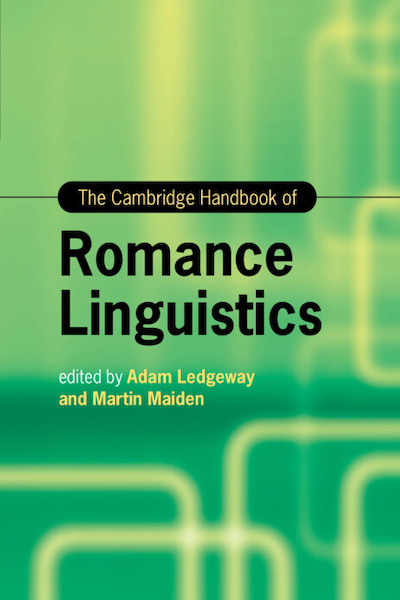
Autors:
Victor Acedo-Matellán, Jaume Mateu & Anna Pineda
Títol:
Argument Structure and Argument Realization (dins The Cambridge Handbook of Romance Linguistics)Editorial: Cambridge University Press
Data de publicació: Juny del 2022
Més informacióThis chapter provides a critical survey of some of the most significant phenomena that show how the study of Romance languages can make a strong contribution to our current theoretical understanding of the principles and empirical generalizations relevant to argument structure and its realization. After defining the notion of argument structure, two different current theoretical approaches to the lexicon–syntax interface are briefly presented: the projectionist one, which is typically adopted in lexicalist frameworks, and the constructivist/neo-constructionist one, which is assumed in non-lexicalist frameworks. The selection of empirical phenomena made in this chapter includes a discussion of the well-known distinction among intransitive verbal predicates (unaccusatives vs unergatives) in the context of Romance linguistics, a review of the crucial role of the Romance clitic se in argument structure and argument realization, a survey of some relevant explorations of events of transferal based on the grammar of dative clitics as well as other aspects of dative-marked arguments in Romance languages, and, finally, a discussion of the prominent place that these languages occupy in the huge literature on Talmy’s lexicalization patterns together with an overview of several refinements made to his initial typology of motion events.


